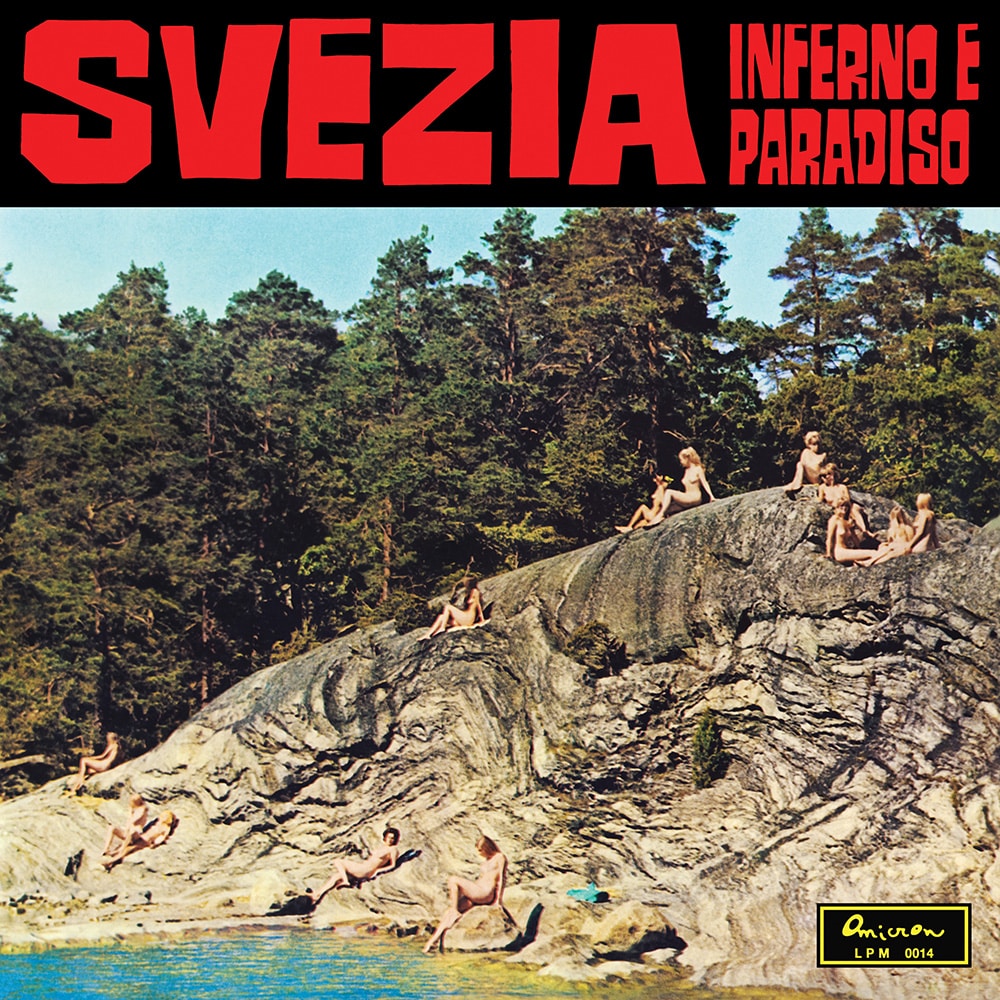Piero Umiliani has once again composed an excellent soundtrack, this time for Luigi Scattini’s film “SVEZIA, INFERNO E PARADISO” (Sweden, Heaven and Hell). One of those so-called ‘mondo movies’, the film had been entirely filmed in Sweden, probably encountering great difficulties. Actually, some highly dramatic scenes are not reconstructions, but feature real people as opposed to actors, as for instance the one portraying a meeting of a group of junkies or another of a night at a lesbian club. Umiliani’s music is able to emphasize the different moods of the movie: at times dramatic, on other occasions ironic or peaceful.
This soundtrack has three different themes. The first one accompanies the opening credits and constitutes the leitmotif of the movie. It was developed in four different versions: “YOU TRIED TO WARN ME”, with Lydia McDonald’s voice, “STOCCOLMA MY DEAR”, “LADY WAITRESS” and “MIDSUMMER NIGHT”.
The second one is a brilliant and captivating slow movement, recorded in four variants as the previous one: the lullaby-paced “SLEEP NOW, LITTLE ONE”, also sung by Lydia McDonald, and three different interpretations entitled “SOLITUDINE”: a strings version, a jazzy one featuring the excellent Antonello Vannucchi playing the organ and a final one with Alessandro Alessandroni’s choir.
The third motif, delivered in three different versions – “LE RAGAZZE DELL’ARCIPELAGO”, “FASHION MODELS” and “TOPLESS PARTY” – emphasizes, as clearly indicated by the songs titles, a long series of scenes dedicated to the not so covered bodies of the beautiful Swedish girls. The last track mentioned in particular, is an arrangement in which appears one of our best soloists, the guitarist Carlo Pes.
The LP also includes three other compositions: “VIOLENZA”, “ESSERE DONNA” and “EVA SVEDESE” (a perfect track for those who danced the ‘shake’, a fad dance that became popular in Italy during the late 60s, with bassist Maiorana and drummer Roberto Podio). Although this soundtrack is very different from Umiliani’s more jazz-oriented works (“I SOLITI IGNOTI”, “SMOG”, “UNA BELLA GRINTA”), he actually shows once again that jazz is at the basis of his musical sensitivity: jazz elements occasionally emerge especially from the interpretation of the soloists, that under Umiliani’s wise direction were able to outperform themselves.
Stefano Gilardino




